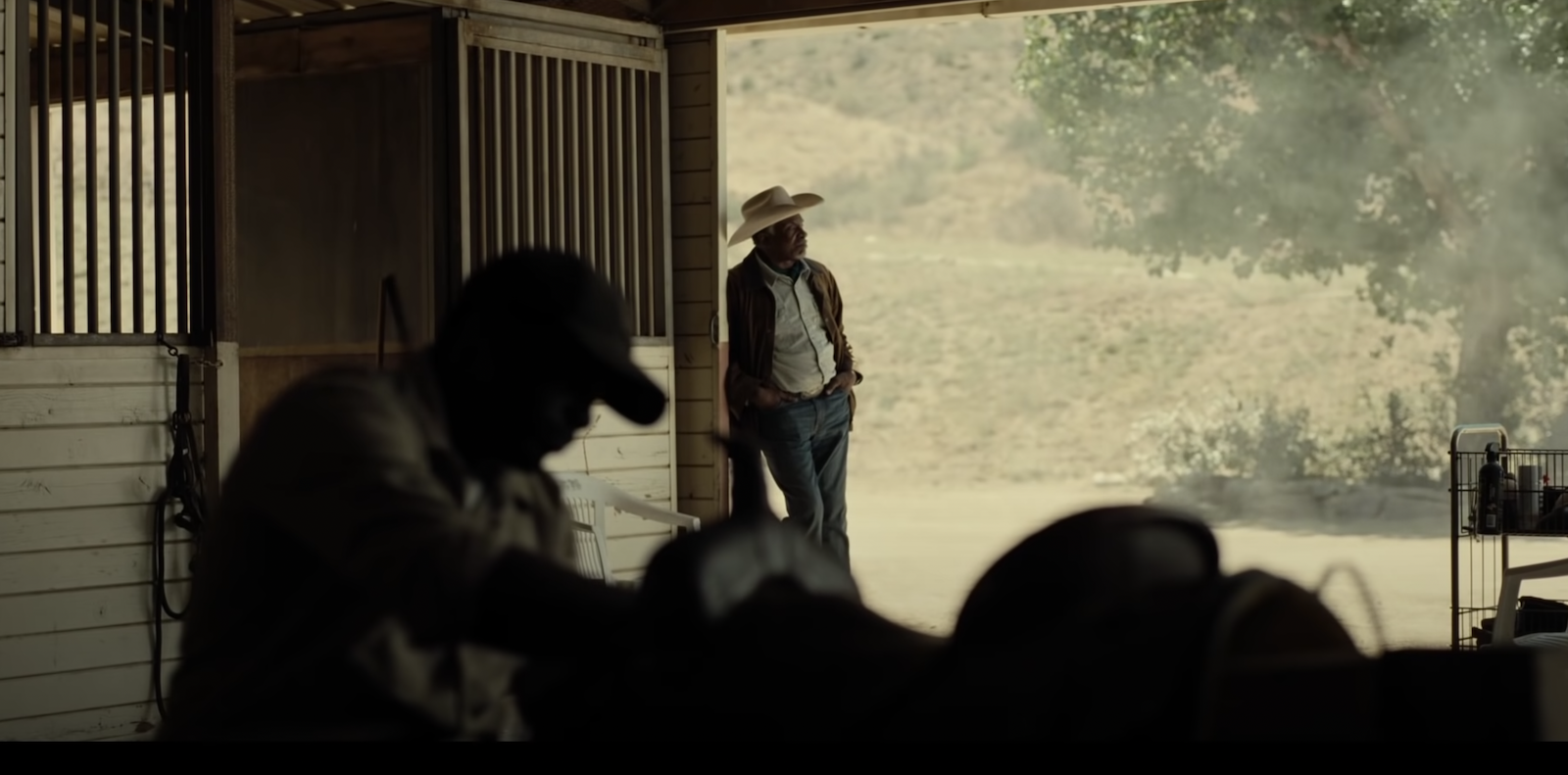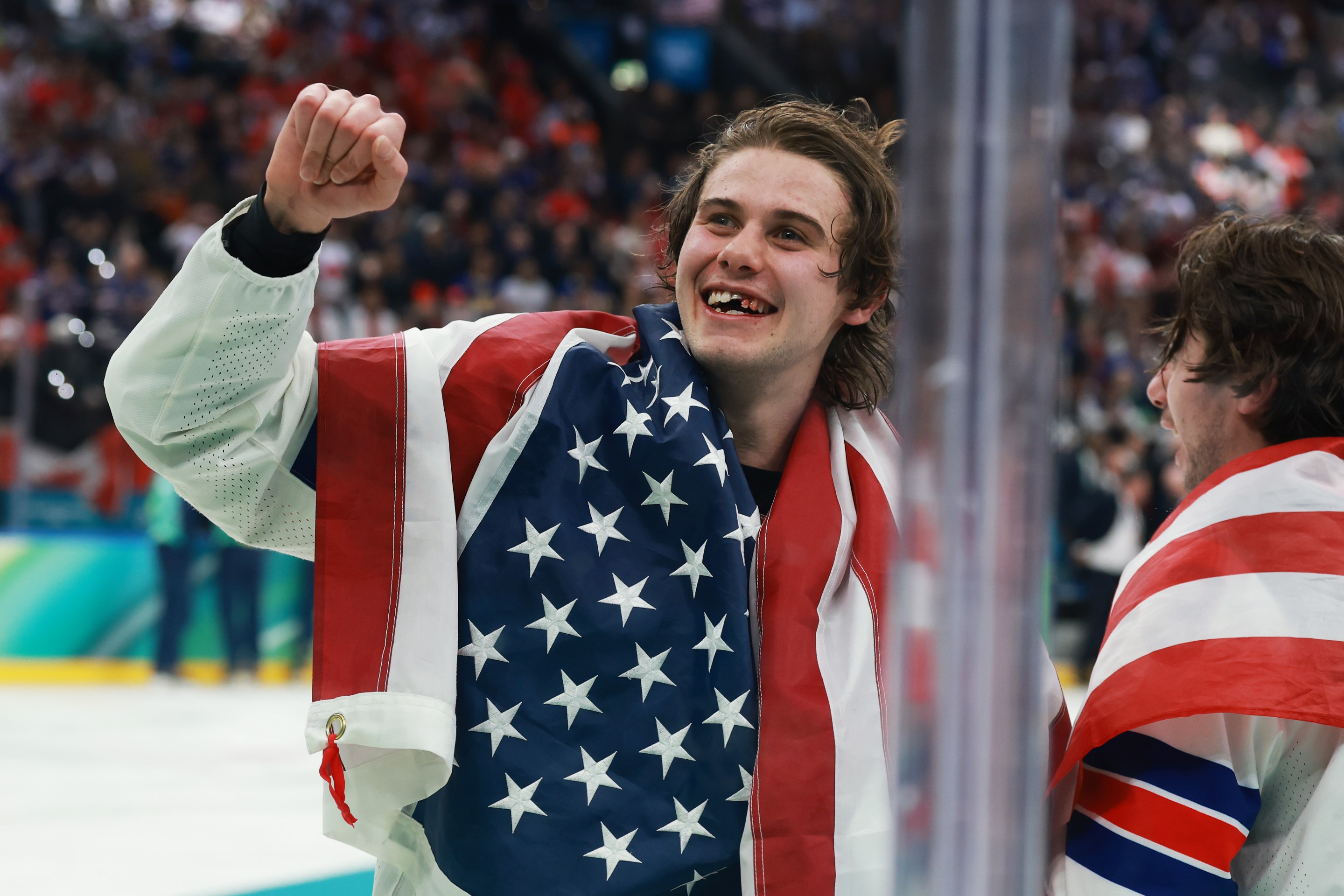Welcome to Hey It's That Guy, a series celebrating a selection of character actors and spotlighting, in detail, the under-appreciated, singular traits that make them so indelible.
The definition of a character actor is manifold, meaning I’m going to constantly reiterate or revise what exactly that definition is over the course of this column, because I can! But for our purposes here, one constant aspect for someone like Keith David is relentless work. Credits upon credits in films, TV shows, and commercials that, beyond the hits, most people have never heard of, or, alternatively, have deep-set memories of from childhood, even if these lesser projects were ultimately insignificant to the mainstream.
Lately, I’ve been pondering the significance of actually recognizing character actors these days, the newer generations that appear mostly through streaming, likely turning in great performances that are swallowed into the abyss of any given platform’s massive libraries. It’s fair to say there’s been too much nostalgia for certain aspects of the recent past (the ‘90s), but it is a fact that if all you have is basic cable, or even premium cable, eventually you’re going to fall into the groove of reruns, catching the same movies with the same faces at different points in the narrative. Over time, this has a preserving effect on one’s memory, especially if you’re young. And, in a way, this column is about when I was young and how the things that mattered to me then can matter to me now. Keith David was and continues to be a big part of that. Though he’s had a long, prolific career that is in no danger of stopping, I’ve rarely seen him given the respect I’ve held for him in my own mind for most of my life.
Let’s start here: Keith David was the first voice actor playing a nominally white character that I just knew was actually black. Goliath, the leader of the Manhattan Clan of Gargoyles in the ‘90s cartoon Gargoyles voiced by David, isn’t explicitly coded as white, though if you were to show his picture to anyone who hadn’t watched the show—long straight black hair, square jaw, the blandly common masculine features of most animated heroes usually based on white men—they’d assume he was. It’s a peculiar kind of oscillation to watch something as a kid knowing that what you’re seeing is make-believe, and yet also understanding that something else doesn’t quite line up in the actual creation of that make-believe. This isn’t a criticism of David or Gargoyles, far from it. Actors like David tend to occupy strange places in Hollywood, black performers whose talents and vocal capabilities are as much sought after (potentially more so) as their ability to lend easy diversity to a project. The trap, such as it is, can be to find yourself rewarded for your own willing tokenization. David has never fallen into it.
Dizzying is one way to describe the actor’s filmography. Since the late ‘70s, David has played every kind of person, from kings to paupers, and yet he might be most famous for his roles in genre fare: The Thing, They Live and its famous prolonged alleyway fight scene, Tales from the Hood 2, Pitch Black and The Chronicles of Riddick, Horror Noire, and most recently, Jordan Peele’s Nope. To be fair, this is selling him short. People who have never seen David likely know him by his voice in: Princess Mononoke (the dub), Hercules, various Ken Burns documentaries, the titular character in the Spawn animated show as well as a smattering of other short-lived early-aughts animated series like The Legend of Tarzan, Spider-Man: The New Animated Series, The Princess and the Frog, Adventure Time, plus a bunch of shows I’ve never heard of that don’t seem real to me (Superior Donuts? Not animated, but whatever). If you’re a nerd, and you must be on this site, take your pick of any major video game franchise: the Halo series, the very first Fallout, Mass Effect, Saints Row, Call of Duty: Modern Warfare, Mortal Kombat.
An impressive resume doesn’t ever objectively equate talent (James Franco, late-era Samuel L. Jackson, and The Rock come to mind) and there are duds in David’s career, just like anyone else. But I’m most interested in the qualities of character actors that lend themselves to the kind of memorability akin to an earworm. David’s vocal facility is impossible to overstate, conveying gravitas, yes, but also a strain of gentle paternalism, an understanding and attention that almost makes you sad for how perfect and unattainable it sounds. As merc-turned-hell-servant Al Simmons in Spawn, David undercuts the menace and brutality of one of comics' more severe anti-heroes by playing up his tortured, reluctant vulnerability, tapping into the sense that regret and disappointment are feelings as painful and interfering as love or friendship. There are echoes of this in David’s performance of Goliath from Gargoyles, which throws his live-action roles into an interesting relief.
There is no one kind of character David appears to prefer but, seemingly by the happy accident of working in the industry for so long through so many transformational periods, David has played masculinity from every vantage point. In Sam Raimi’s underrated The Quick and the Dead, David’s peacocking Sergeant Cantrell, all flashing teeth and puffed chest, stands in conversation with slick, glad-handing loan shark Lester Wallace in Barbershop, two characters in direct contrast to the brooding, tough types John Carpenter called on him to play in The Thing and They Live. Dozens and dozens of roles are stuffed into David’s career and it would be easy to miss their impact on black performance if one were to simply take his filmography at face value. But David is important, to the industry and to me, for the very fact that his own love of the work and the process of delving into character also reflects his pride in the nuances of blackness. This type of thing can often be overwrought, praise for representation, the terming of diversity as a foundational, disruptive agent of that slippery notion called progress. But David, more so than most actors, character or not, has always been interested in the line between racial stereotype and truthful portrayal, in the ins and outs of the culture and how he might most adroitly present the people he plays.
I thought of this most during his short scenes in Nope. Jordan Peele has directed three films across which it has been made clear that blackness informs his approach to horror. The most obvious elements of this fascination can be found on the plot-level: black bodies used like tools, hidden away like trash, history clashing with societal myopia within the large gaps in equality that stem from slavery and racism. Heady subjects, some dealt with more effectively than others, but Nope might be Peele’s masterpiece for the way it utilizes cinematic reference as an integral thread rather than ironic affectation. Put another way, Nope constantly nods its head towards the likes of Jaws and Close Encounters of the Third Kind in ways that feel of a piece with the narrative as opposed to dutiful, lazy easter eggs.
David’s appearance in the film is in and of itself another well-integrated homage. He plays a fallen patriarch, a rancher whose Hollywood horse-training business has been as essential to the movie industry as it has been overlooked and taken for granted. David appears in only a few scenes, but each is loaded with melancholy. In flashback, Peele shoots David in profile or just out of frame, an elusive figure, an absent father, but also a proud man. The pioneering black industry leader whose hustle in Hollywood has been making his services indispensable to his clients.
For me, it was hard to watch Nope and not feel a pang of regret, and to not wish that David’s career had taken up more space in Hollywood history. But maybe that was the point. There was David, a commanding presence in a role he was born to play—I couldn’t help but smile every time he was onscreen, partly due to his character’s wonderful accent, but also because I could see so much history packed into so little space—and yet still being held at the periphery. Among other things, Nope is a movie about forging legacies. What better way to do so than to have it all start and end with Keith David?






